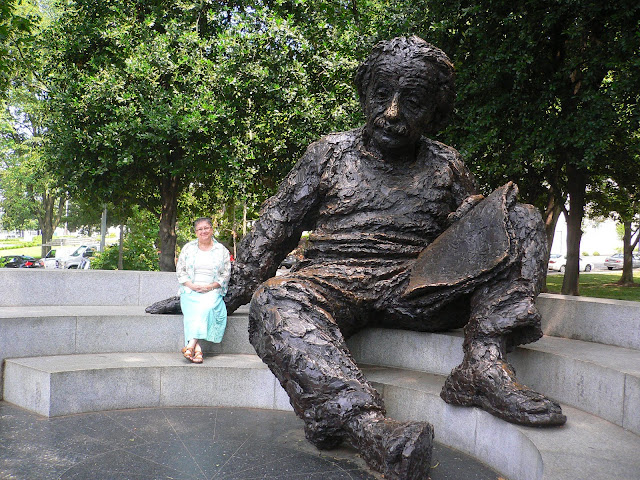Although I/we know some people who are jobless, I still have the attitude that some who will 'suffer' due to this economic downturn/recession/depression-- whatever we decide to call it-- may be those who have less willingness to ask the tough questions about what they may really want to do with their time and lives. As I look at my parents who lived through two World Wars and many financial downturns, they became stronger and wiser because of those events. They did not turn to the government to 'bail them out'. They learned to save and to pay with cash. They learned to 'do without' and to help each other. People can still learn those things. We can recover the resiliency that been the trademark of those who 'survived' the challenges of life.
I know that history shows when many people get laid off, they found ways to blend their specific strengths and gifts to meet the needs of others. There is a principle in the 12-step problem of overcoming addictions that recognizes that hitting bottom must happen before people can face the fact they MUST change. Hopefully, more governmental leaders and individuals will learn from this fact. Change cannot happen without pain.
I think that we will see fewer people spending on their 'hobbies' and we might concentrate more on the 'needs' rather than the wants. Perhaps, in fact, that means that more people will be attracted to working for non-profits, and understanding the benefits of such work. The satisfaction that one receives when helping someone else is difficult to explain but it is something that is somewhat universal. It also can not be easily taught through logical learning processes. It requires the inclusion of emotion. Therefore, affective education. That term may not be much used these days, but 30-40 years ago it was recognized as an excellent tool for training in prevention. Now we use 'case studies' or 'best practices', but the term affective education is not seen much.
The emotion that is referred to is 'passion' for what one believes to right-- therefore, ethics--which is something else we don't too good of job of doing in schools. Zero tolerance is not ethics. It is blind obedience. We are beginning to see the outcome of zero tolerance. . Intolerant children. children and teachers who can't make decisions on their their own. They look to the rules of the country/institution/workplace to save them. How did I get on this topic? It seems I often get back to this basic stuff of emotional intelligence. .no matter how hard I try not to.
well. .it is December-- a time for holidays, and giving, and thinking about family and peace and caring about others. Fortunately, I work in a place where I get to enjoy helping people accomplish doing that (giving & caring) and it is not through traditional gifts.
so. .here's wishing you and yours a blessed holiday season, and a year-end that will help you be hopeful about the future, even in your doubts and fears of the future. LM
Subscribe to:
Post Comments (Atom)













No comments:
Post a Comment